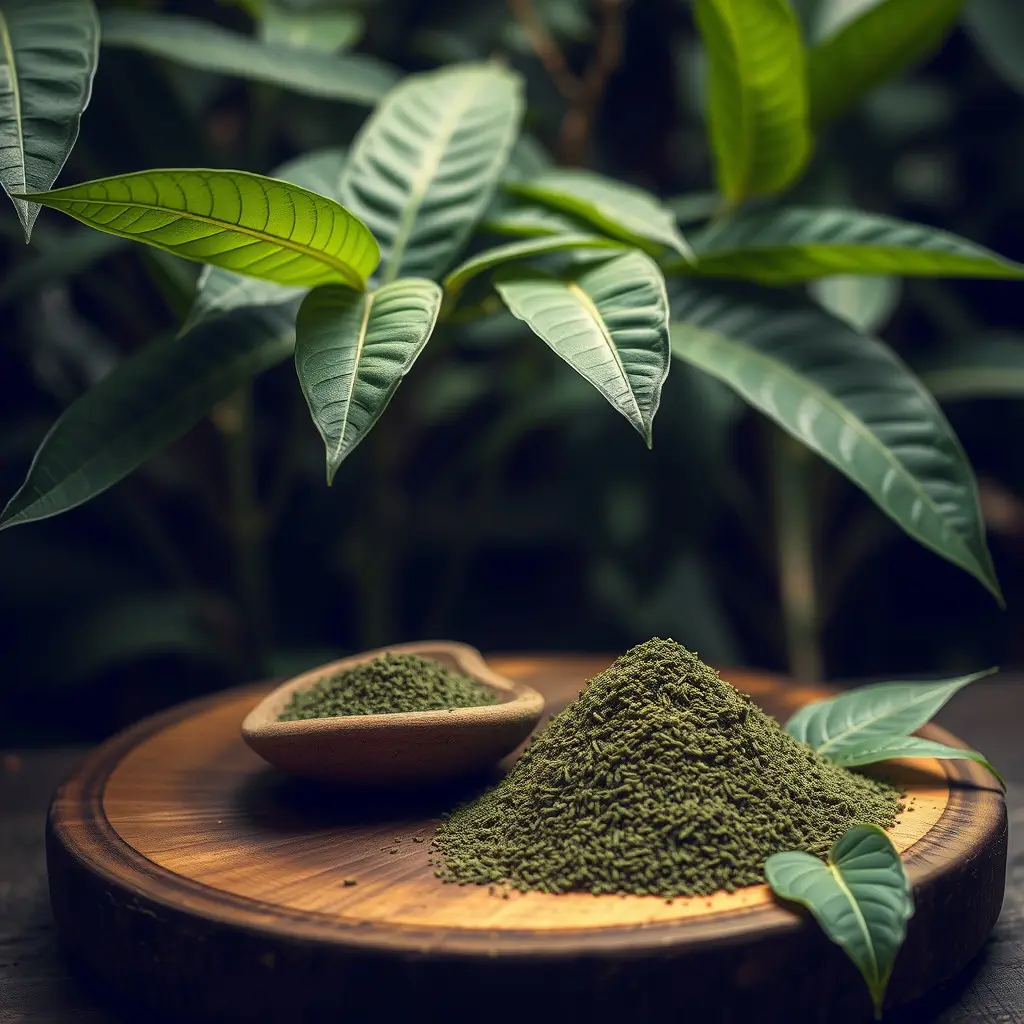Kratom, a plant from Southeast Asia with opioid-like effects due to its active compounds mitragynine and 7-hydroxymitragynine, is under scrutiny for aiding in opioid withdrawal relief. Despite this, its legal status in Texas is complex and subject to change, as it is not explicitly controlled at the state level but is categorized as an emerging drug, which could lead to misdemeanor charges for possession or distribution beyond personal use (under 28 grams). The situation is further complicated by conflicting federal regulations and local ordinances, such as those in cities like San Antonio. As of my knowledge cutoff date, the legality of kratom in Texas varies by jurisdiction, making it essential for individuals to verify current laws and consult healthcare professionals. The FDA has raised safety concerns about kratom, highlighting the need for careful consideration and legal compliance when using it for managing opioid withdrawal symptoms. In summary, "Is kratom legal in Texas?" requires a specific answer based on your location within the state due to the evolving legal landscape and varying local regulations.
Exploring the potential of kratom as a natural remedy for managing opioid withdrawal symptoms, this article sheds light on its role, the legal considerations within Texas, and the scientific rationale supporting its efficacy. Delve into understanding how kratom might alleviate the distressing experiences associated with detoxification, while also navigating the complex legal landscape surrounding its use in Texas. Is kratom legal in Texas? This crucial aspect is pivotal for individuals considering this approach as part of their recovery journey. Join us as we unravel the science and implications of kratom in the context of opioid withdrawal.
- Understanding Kratom's Role in Mitigating Opioid Withdrawal Symptoms
- Legal Status of Kratom in Texas: What You Need to Know Before Use
- The Science Behind Kratom and Its Efficacy for Opioid Detoxification
Understanding Kratom's Role in Mitigating Opioid Withdrawal Symptoms

Kratom, a plant from Southeast Asia with leaves that contain compounds that can interact with opioid receptors in the brain, has garnered attention for its potential role in mitigating opioid withdrawal symptoms. The alkaloids present in kratom, primarily mitragynine and 7-hydroxymitragynine, share structural similarities with opioids, which may explain their interaction with the opioid receptors, potentially offering relief from withdrawal effects. As individuals seek alternatives to traditional medication-assisted treatment for opioid withdrawal, kratom has emerged as a topic of interest and research. It’s important to note the legal status of kratom varies across different states in the U.S., with specific regulations in place. For instance, is kratom legal in Texas? In Texas, kratom is not explicitly illegal at the state level, but its legal status can be murky due to federal and local regulations. The Texas Health and Safety Code classifies kratom as an emerging drug, which means it’s a misdemeanor to possess or distribute it, except for amounts not exceeding 28 grams, which are intended for personal use. This classification underscores the importance of understanding both the potential benefits and legal limitations associated with kratom use. Users in Texas considering kratom as a means to manage opioid withdrawal should first consult healthcare professionals and be aware of the legal implications of its use. Additionally, ongoing research is crucial to fully comprehend kratom’s efficacy and safety profile for such purposes, as well as to inform policy decisions that align with public health objectives.
Legal Status of Kratom in Texas: What You Need to Know Before Use

Kratom, a plant native to Southeast Asia, has gained attention for its effects on pain and withdrawal symptoms, particularly in the context of opioid addiction. As of my knowledge cutoff in 2023, the legal status of kratom in Texas is subject to change, reflecting the dynamic nature of drug legislation. In Texas, kratom’s legality varies across different jurisdictions within the state. While the Texas Health and Safety Code classifies kratom as a penalty group 1 substance, which historically classified it alongside heroin and LSD, recent legislative efforts have sought to clarify its status. It’s crucial for individuals considering the use of kratom in Texas to verify its legal status at both the state and local levels, as county or city ordinances may impose restrictions that are stricter than the state law. For instance, specific cities like San Antonio have enacted their own ordinances regulating or restricting the sale and consumption of kratom. To navigate this complexity, residents should consult official legal sources or local health departments to ascertain the current regulations affecting kratom’s legality in their area. This due diligence is essential for anyone interested in using kratom as a means to manage opioid withdrawal symptoms within the legal framework established by Texas law. Is kratom legal in Texas? The answer may differ depending on your location within the state, emphasizing the importance of up-to-date information before use.
The Science Behind Kratom and Its Efficacy for Opioid Detoxification

Kratom, a plant originating from Southeast Asia, has garnered attention for its potential role in managing opioid withdrawal symptoms. The efficacy of kratom in this context is rooted in its active compounds, mitragynine and 7-hydroxymitragynine, which interact with the body’s opioid receptors. These alkaloids can provide relief from withdrawal symptoms by mimicking opioid effects to a lesser extent without the same level of addiction risk. Clinical studies have suggested that kratom may mitigate symptoms such as anxiety, muscle aches, insomnia, and other distressing effects associated with opioid cessation.
When considering the use of kratom for opioid detoxification, it’s pertinent to address its legal status. In Texas, as in many other states, the legality of kratom is subject to ongoing legislative review and can vary by locality. As of the knowledge cutoff date, kratom is not explicitly classified as a controlled substance in Texas, which means it is technically legal to possess and consume. However, regulations can change, and it’s advisable for individuals to consult the most current laws within their jurisdiction before using kratom as part of an opioid withdrawal management strategy. Users should also be aware that the FDA has issued warnings about the risks associated with kratom use, including potential side effects and the possibility of abuse and dependency. Therefore, while kratom may offer benefits for some individuals in opioid detoxification, it is crucial to approach its use with caution, under medical supervision, and within the confines of the law.
Kratom’s potential as a mitigator for opioid withdrawal symptoms presents a promising avenue for those seeking relief during the detoxification process. However, it is crucial to approach this topic with informed perspective, considering the variable legal status of kratom across different states, including Texas. As outlined in the article, understanding both the scientific rationale and the regulatory framework governing kratom’s use is essential for those interested in exploring this option. Prospective users in Texas should first verify the current legal standing of kratom within their jurisdiction, as it can vary by city or county. In light of these considerations, kratom may offer a natural alternative for managing withdrawal symptoms associated with opioid cessation, but always within the confines of the law and under professional guidance to ensure safety and efficacy.






